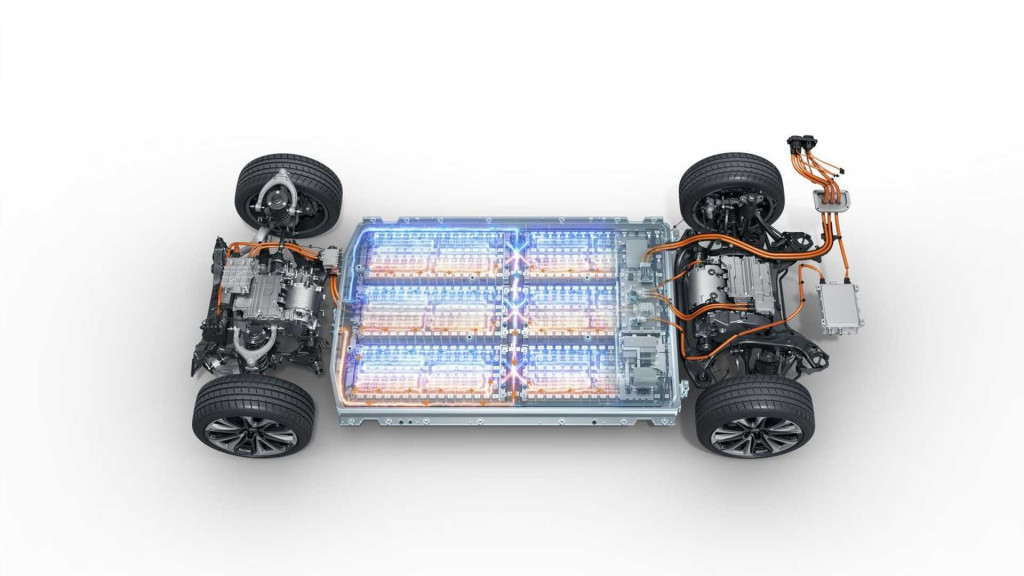To help accelerate the launch of electric vehicles in China, Volkswagen said on Wednesday it plans to partner with local automaker Xpeng.
The long-term strategic partnership will see VW invest $700 million in Xpeng in return for a 4.99% stake in the company as well as access to its technology, including EV platforms.
The announcement comes just days after SAIC, China's biggest automaker, said it will partner with fellow Volkswagen Group brand Audi. The Audi and SAIC deal will see the automakers jointly develop Audi EVs for sale in China, based on SAIC platforms.
Similarly, the VW and Xpeng deal will see the automakers jointly develop VW EVs for sale in China, based on Xpeng platforms. Two models in the mid-size segment were confirmed by VW for launch in early 2026. They will use the platform that debuted in 2021 in Xpeng's G9 mid-size SUV, known as the SiC platform.

Xpeng SiC platform
Eventually, Audi and VW plan to jointly develop next-generation EV platforms with their respective Chinese partners. Specifics for these future platforms are still being negotiated.
Audi and VW said the partnerships aim to “swiftly” tap into new segments with vehicles suited to Chinese buyers. Though both brands have been dominant in China for gas-powered vehicles, they have struggled to capitalize on China's rapidly growing demand for EVs.
Various VW Group brands including Audi and VW have been plagued by a lack of new EVs due to delays related to software issues. Combined VW Group EV sales in China were just 21,500 units in the first quarter of 2023, of which just 3,000 were Audis. In comparison, Tesla managed 137,000 units over the same period.
Audi in June also named Gernot Döllner as its new CEO after VW Group CEO Oliver Blume was critical of Audi's performance, including its EV delays and poor sales in China.
